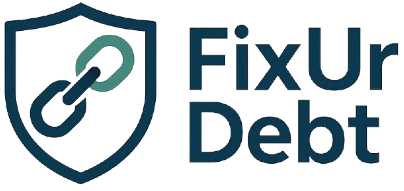A personal loan can either help you breathe a little easier or leave you stuck in a financial mess for years.
The difference lies in the details, APR, fees, loan terms, and the lender behind it.
With so many companies promising fast cash and easy approvals, knowing how to separate a decent offer from a bad one isn’t always obvious.
So how do you pick a personal loan that won’t ruin you?
Let’s break it down, using not just expert advice, but also real stories from people who’ve been through it.
Start with your credit and income reality
Before you even open a loan comparison site, look at your own numbers.
Your credit score will determine what kind of offers you’ll get, if any. According to Experian, most lenders won’t even show you a decent APR unless your score is above 670.
If you’re below that, your options will be limited and more expensive.
But credit is only part of the story. Lenders also care about your debt-to-income ratio, how much of your income already goes to monthly payments.
If you’re already stretched thin, expect smaller loan offers or flat-out rejections. That’s not discrimination, it’s math.
Not all lenders are equal
The loan itself is only half the deal. The lender matters too. There’s a big difference between taking a $2,000 loan from a traditional bank and getting it from a tribal lender with a 600% APR.
On r/financeonloans, users often warn against companies like Uprova:
“They’re legit. But the interest is way too high. I took out a $1,000 loan, and if I stuck to the schedule, I’d end up paying over $4,000.”
Another user put it simply:
“Funds were in my bank within 30 minutes… but if I hadn’t paid it off fast, I’d owe more than triple.”
These are real people learning the hard way that fast money comes at a price. Look up your lender on Trustpilot or the BBB before signing anything.
Good companies like SoFi or Discover usually have decent user feedback and transparent terms. If you see hundreds of complaints or vague loan disclosures, walk away.
Don't borrow more than you need
This one comes up constantly in community threads like r/povertyfinance:
“The lender approved me for more than I needed… and I almost accepted it. But with interest, it would’ve turned into a long-term nightmare.”
Just because they offer you $5,000 doesn’t mean you should take it. Borrowing more than necessary inflates the total cost, especially if your APR is over 20%.
Remember, a personal loan isn’t free monesy, it’s rented money.
Read the fine print, or regret it later
Here’s where most people get burned. They look at the monthly payment, see that it seems manageable, and hit “accept” without checking:
- Total interest paid over time
- Late payment penalties
- Prepayment penalties (yes, some lenders charge you for paying early)
- Auto-payment clauses APR vs “interest rate”—those are not the same thing
If you're not sure how to calculate the real cost of the loan, use a loan calculator. A $3,000 loan at 24% APR over 36 months can cost you more than $1,200 in interest.
The only good loan is one you can pay off
The goal of a personal loan isn’t to carry it for years. It’s to solve a short-term problem and then get out.
Early repayment is often the only way to make a high-interest loan semi-reasonable.
Before accepting any offer, make sure there are no prepayment penalties, and then make a plan to pay it off as quickly as possible.
Safer alternatives worth trying first
If you’re taking out a loan just to survive the next two weeks, you might be better off avoiding a personal loan altogether. Redditors often recommend:
- r/credit: A comprehensive resource for understanding credit, improving your score, and accessing more affordable loan options.
- r/debtfree: Stories and advice about paying off debt and avoiding costly lending traps.
- r/debt: Honest conversations about all types of personal debt, including tribal and payday loans.
- r/borrow: A peer-to-peer lending community where users may request or offer personal loans with flexible terms.
- r/Loansharks: Focused on understanding and avoiding predatory lending practices.
- r/financeonloans: Broader discussions on personal loans, lenders, and real-world user experiences.
Final thoughts
A good personal loan doesn’t just get you money, it gets you out of a problem without creating a bigger one. It’s not about finding the fastest option or the biggest amount.
It’s about balance: the right loan, from a transparent lender, with a payment plan you can actually manage.
And check Loans for Small Business forum if you are looking for help on business loans and lines of credit.
There are full of people who’ve done it themselves, and are happy to help. Use Reddit, Trustpilot, and calculators before you commit.
And if it feels rushed or unclear, take a breath. You’re not just signing a contract, you’re signing away months or years of payments. Make sure it’s worth it.
